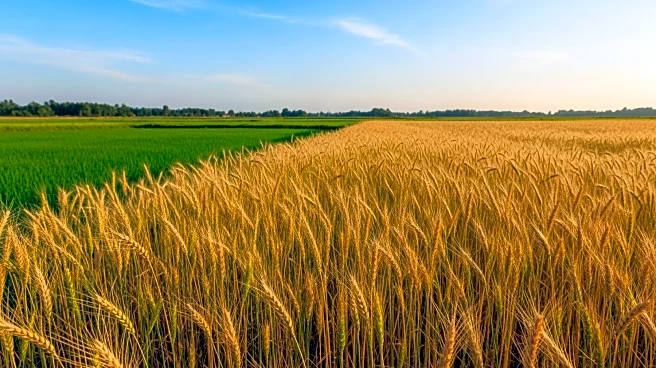What's Happening?
Ethiopia's Ministry of Agriculture announced that domestic wheat production has replaced 17 million quintals of imports, saving the country over $700 million. The agricultural sector grew by 6.7% in 2024/25, driven by initiatives under the 'Yelemat Tirufat' program. The ministry plans to expand rice cultivation to further reduce import reliance. Agriculture contributes significantly to Ethiopia's export earnings, with coffee being a major export. The ministry aims to develop half of Ethiopia's arable land through mechanization and land development.
Why It's Important?
Ethiopia's success in wheat production marks a significant step towards food self-sufficiency and economic resilience. The savings from reduced imports can be redirected to other developmental projects. Expanding rice cultivation could further enhance food security and reduce dependency on foreign markets. The agricultural growth supports employment and economic stability, contributing to Ethiopia's long-term development goals.









